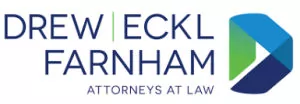On January 13, 2022, the U.S. Supreme Court issued a decision blocking OSHA from implementing the COVID-19 Vaccination or Testing Emergency Temporary Standard (the "ETS") until a determination is issued on the legal challenges to the ETS. The ETS requires employers with 100 or more employees to require employees to either be fully vaccinated against COVID-19 or submit to weekly COVID-19 testing. In support of its decision to block the ETS, the Supreme Court stated that the legal challenges to the OSHA's authority to impose the requirements contained in the ETS are likely to succeed.
"This is no 'everyday exercise of federal power.' Although Congress has indisputably given OSHA the power to regulate occupational dangers, it has not given that agency the power to regulate public health more broadly. Requiring the vaccination of 84 million Americans, selected simply because they work for employers with more than 100 employees, certainly falls in the latter category."
U.S. Supreme Court
In a separate decision issued today, the Supreme Court upheld the Biden Administration's mandate that health care workers must be vaccinated to work at medical facilities receiving Medicare and Medicaid funding. The requirement does not have a daily or weekly testing option for unvaccinated workers, but does permit exemptions for individuals who cannot be vaccinated against COVID-19 for religious and disability-related reasons. The Court held that the Department of Health and Human Services has the authority to issue such a mandate because federal law allows DHHS to impose conditions on Medicaid and Medicare funds.
The content of this article is intended to provide a general guide to the subject matter. Specialist advice should be sought about your specific circumstances.
We operate a free-to-view policy, asking only that you register in order to read all of our content. Please login or register to view the rest of this article.



